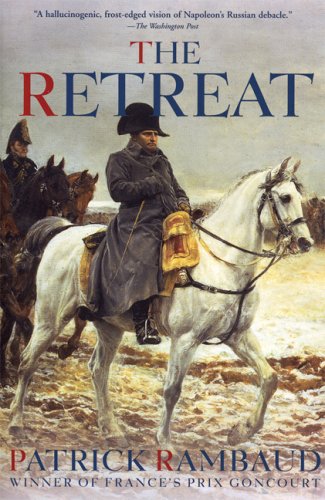The Retreat
The Grande Armée that swept into Russia in summer 1812 was a diverse and powerful force of some 600,000 soldiers. They came from France and from the states controlled or allied with Napoleon. It invaded believing the campaign would end in a spectacular Russian defeat and in the inevitability of the continued rise of the Emperor. It ended in a disaster that saw a few thousand starving and ragged survivors reach safety after a harrowing death march through the savagery of a terrible Russian winter. The French military would never recover and, despite a brilliant defense against his many enemies emboldened by 1812, Napoleon would be sent into his first exile as a result of the astounding losses in Russia.
Rambaud peoples his novel with a number of historical and fictional characters, but the most captivating are Captain D’Herbigny and Sebastian Roque. One is a veteran of countless battles and has seen the world at its worst; the other is a young clerk uprooted from a safe job at a Paris desk to be part of the Imperial Headquarters. They each are witnesses to an army disintegrating into mob violence as a result of hunger, cold, and fear of the dreaded Cossacks. The reader views war not in the brilliance of an armed force bathed in the sunlight of victory but as a mass of frightened animals desiring only to return alive from the frozen hell their egomaniacal leader has drawn them to.
Rambaud’s earlier The Battle displayed his imaginative recreation of a Napoloeonic battlefield. The Retreat allows us to view human beings at their most desperate.










